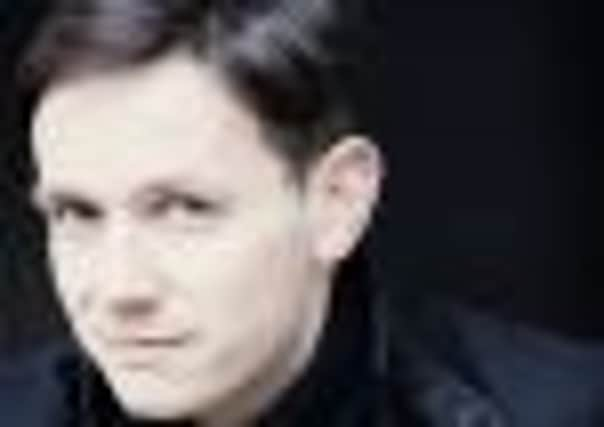Manhattan came first, but a home debut fast approaches


“My family left York when I was still a child, but whenever I came close to the city, even when I was just passing through on the train, I had this very strange feeling that I had to return to live here,” says Iestyn Davies.
“Then, three years ago, with my career well established, I did just that.”
Advertisement
Hide AdAdvertisement
Hide AdFor Iestyn Davies, his move north came at a time when he was fast becoming one of the most exciting newcomers on the international opera circuit, engagements stretching more than three years ahead as appearances were scheduled in prestigious concert halls and opera houses on both sides of the Atlantic.
Coming from a professional musical family, he had to spend some time away from York to be educated at a boarding school in Somerset where his aptitude as a singer was soon noted. He became a choral scholar in the world famous choir of St John’s College, Cambridge, followed by years he describes as living in the “busy world of concerts, broadcasts, recordings and tours”.
Nature dictates that life as a boy treble is limited, but he had the good fortune of a voice that took some time before adulthood, allowing him time to pass through transition and adjust towards studying the totally unrelated subjects of archaeology and anthropology in which he eventually graduated from university.
“Singing remained the thing I most wanted to do in life. I first tried to become a tenor but wasn’t very good, so I moved to the bass range and that was a disaster. It was only when I was messing about singing falsetto that people began to take notice of me,” he says.
Advertisement
Hide AdAdvertisement
Hide Ad“I was nothing unusual, every male is born with the ability to sing falsetto, even those with a deep speaking voice, but it can only be used in short periods before it becomes exhausted, and you would certainly be unable to project it into a large theatre.
“So you have to seek expert tuition and undertake the rigorous vocal training and strengthening of neck muscles that control the action that takes place in the throat. If you add all of that together, your high register is turned into a viable counter-tenor.
“Even then you use it with great care as it is very different from singers in the normal range who can learn to work through periods when they have minor ailments, with manufactured voices. It is almost impossible to be a natural singer in my vocal range – you have great difficulty coping with those problems.”
Studies moved him to London’s Royal Academy of Music. During his second year, he discreetly entered London’s Handel Festival singing competition, largely to gain experience, though he thought it might be a good idea to invite an artists’ agent to listen to him.
Advertisement
Hide AdAdvertisement
Hide AdIt was a wise move: soon he got a chance to sing at the Zurich Opera, and this was quickly followed by appearances at Glyndebourne, English National Opera and Welsh National Opera. Music journalists were vying to lavish praise on his performances, one describing him as having “one of the most glorious counter-tenor voices in the world today”.
“Later this year I make my debut at New York’s Metropolitan Opera in Handel’s Rodalinda with a star-studded cast. The performance is being shown ‘live’ in cinemas around the world. I return there for the next two seasons, and next year I make my first appearance with the Chicago Lyric Opera and have a debut recital at New York’s Carnegie Hall.”
Then there is opera at La Scala, Milan, a return to the Royal Opera House in Covent Garden, where he has already made a DVD of Purcell’s Dido and Aeneas, oratorio in Liepzig, Vienna and Amsterdam and back to London’s Wigmore Hall to take up a recital residency.
Increasingly in demand as a recording artist with two versions of Handel’s Messiah already out, and rave reviews for operas by Vivaldi and Handel, this month sees a release on the Hyperion label (featured in today’s album reviews).
Advertisement
Hide AdAdvertisement
Hide AdThen, finally, Yorkshire: “It has been a long time coming, but in a couple of weeks I make my debut in York with a celebration of English music across two centuries at the National Centre for Early Music.”
A muscical life that leads from York to New York
“Davies is not only an exquisitely refined and sensitive singer, with all the pure tone, clean projection and firm pitch of the most celebrated current name in the field, Andreas Scholl, but also a serious professional,” says critic Rupert Christiansen. Iestyn Davies with Phantasm is at the National Centre for Early Music in York, this coming Monday at 7pm. 01904 658338. Rodalinda live from the Metropolitan Opera will be screened at leading cinemas throughout the UK on Saturday December 3.
Dido and Aeneas is available on DVD from Opus Arte.